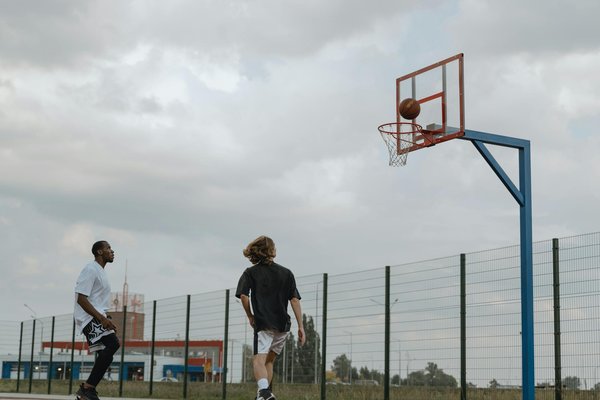Distinctive Training Techniques in UK Combat Sports
UK combat sports training stands out for its fusion of traditional elements with innovative, hybrid approaches. British gyms have crafted unique combat sports training UK programs that blend classical boxing fundamentals with modern MMA and kickboxing tactics. This synthesis emphasizes versatility and adaptability, setting UK boxing, UK MMA, and UK kickboxing apart globally.
A key feature of these British training techniques is the focus on technical precision combined with physical endurance. For example, UK boxing prioritizes sharp footwork and defensive skills, while UK MMA integrates striking and grappling seamlessly. UK kickboxing, meanwhile, often adopts drills that develop power and agility, reflecting both Eastern martial arts influences and British grit.
Notable figures and gyms have been vital in developing these distinctive training methods. Trainers emphasize cross-disciplinary drills, promoting fighters who excel in multiple combat domains. This approach highlights the value placed on well-roundedness in UK combat sports, making unique combat sports training UK a benchmark in the martial arts community worldwide.
Specialized Approaches in UK Boxing
Delving into British boxing traditions and training nuances
British boxing training emphasizes footwork and defensive drills that trace back to its rich heritage. Unlike many global styles, UK boxing methods prioritize a blend of agility and resilience, focusing on quick, precise movements that control the ring. This specialized footwork allows fighters to maintain balance and evade strikes effectively, embodying the distinctive British approach to ringcraft.
Sparring styles in British boxing are particularly notable for their technical precision. Athletes train extensively with padwork that hones timing and accuracy, reinforcing a tactical mindset. These exercises improve both offensive and defensive skills, making fighters adept in close-range exchanges and counterpunching.
Historic gyms like the Repton Boxing Club have been instrumental in shaping these methods. For decades, they have cultivated a culture that preserves traditional British boxing techniques while adapting to modern demands. Their influence extends to developing champions who maintain the sport’s classic discipline, combining grit with technical mastery. Understanding these specialized approaches offers insight into why British boxing holds a unique position on the world stage.
Innovations in UK MMA and Kickboxing Gyms
UK MMA training has evolved remarkably, embracing innovative combat sports UK techniques to enhance fighter performance. One significant trend is the integration of cross-discipline training, combining elements from boxing, Muay Thai, Brazilian Jiu-Jitsu, and wrestling. This approach allows fighters to develop versatile skills applicable across different fight scenarios. UK kickboxing methods benefit greatly from this, as athletes gain strategic and technical depth beyond traditional stand-up striking.
Sports science plays a crucial role, with gyms utilizing data-driven conditioning and recovery plans. Unconventional conditioning routines such as hill sprints and circuit training are increasingly common. These methods boost endurance and explosive power, vital for both MMA and kickboxing success. The focus is on functional fitness that mirrors the physical demands of real fights, rather than generic gym workouts.
Gyms like London Shootfighters exemplify these multi-modal strategies. Their routine includes technical drills alongside strength, agility, and cardiovascular sessions tailored to individual fighter needs. This comprehensive approach ensures that athletes excel not only in skill but also in peak physical condition, setting new standards in UK MMA training.
Preserved Techniques from Traditional British Combat Sports
Traditional British martial arts remain rich with techniques passed down through generations, particularly within bare-knuckle boxing UK and catch wrestling training. These combat styles emphasize a blend of skill, endurance, and tactical grip control. For example, catch wrestling training continues to focus on grip strength and submission holds, preserving the original philosophies while adapting to contemporary needs.
Bare-knuckle boxing UK brings unique hand strengthening routines, enhancing fighters’ durability without modern gloves. These routines are essential for maintaining traditional combat readiness and are prized for building resilience and precise striking ability. Fighters often engage in knuckle conditioning exercises, combining impact training with strategic hand positioning learned directly from historic bare-knuckle matches.
The cultural importance of these techniques lies in their continued practice. Combat sports programs in the UK actively incorporate traditional British martial arts methods, ensuring these skills are not lost. Through dedicated training that respects origins, fighters and trainers sustain a vibrant link to the past, blending historical techniques with modern athletic development. This fusion keeps traditional British martial arts accessible and respected today.
Differentiating UK Training from Global Practices
The comparison of UK vs global combat training highlights distinctive traits in coaching approaches and group dynamics. British combat sports differentiation often stems from a structured, disciplined environment strongly influenced by UK sporting culture. Unlike some international martial arts methods, UK training emphasizes a refined balance between traditional drills and modern adaptation.
Coaches in the UK focus heavily on technical adaptability, preparing fighters to react dynamically during bouts. This contrasts with other global practices, which may prioritize repetitive, rigid training sequences over situational flexibility. Moreover, British fighters are ingrained with a heightened sense of mental toughness, a key component driving resilience under pressure.
Group dynamics within UK camps often encourage camaraderie mixed with competitiveness, ensuring athletes push each other while maintaining a respectful, strategic mindset. The influence of British culture is evident in how discipline is interwoven with tactical planning, setting UK combat sports apart. This combination fosters well-rounded fighters capable of adjusting tactics mid-fight, an approach less emphasized in some other martial arts traditions.
Thus, UK training programs uniquely blend technical proficiency, mental resilience, and cultural strategy, creating a distinct global footprint in combat sports.
